Background
Richard Whatmore was born on February 19, 1968, in Newcastle upon Tyne, United Kingdom.

2012
Richard Whatmore, Paul Myles, and a toby jug of Tom Paine.
2016
Professor Richard Whatmore and Professor Emma Rothschild.
Richard Whatmore and the mural of Tom Paine in his former home town of Lewes.
The Old Schools, Trinity Ln, Cambridge CB2 1TN, United Kingdom
Richard Whatmore attended the University of Cambridge and earned a Doctor of Philosophy.





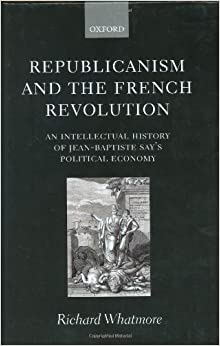
(This book provides a new interpretation of political thou...)
This book provides a new interpretation of political thought and political economy in France from the death of Louis XVI to the July revolution of 1830. The clash between modern republicanism and other theories of governing societies is the background to a thorough interpretation of the life and writings of Jean-Baptiste Say, the most famous political economist of the post-revolutionary era.
https://www.amazon.com/Republicanism-French-Revolution-Intellectual-Jean-Baptiste-ebook/dp/B000RRQRWG/ref=sr_1_6?dchild=1&keywords=Richard+Whatmore&qid=1595512390&s=books&sr=1-6
2000

(These two volumes contain new essays by many of the leadi...)
These two volumes contain new essays by many of the leading scholars in modern British intellectual history, covering a wide range of topics and thinkers. They all draw upon new research but are written in a clear, readable style that will make them accessible to a wide spectrum of readers.
https://www.amazon.com/History-Religion-Culture-Intellectual-1750-1950/dp/0521626390/ref=sr_1_11?dchild=1&keywords=Richard+Whatmore&qid=1595512390&s=books&sr=1-11
2000
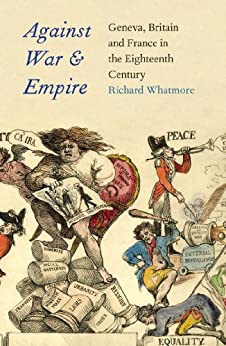
(As Britain and France became more powerful during the eig...)
As Britain and France became more powerful during the eighteenth century, small states such as Geneva could no longer stand militarily against these commercial monarchies. Furthermore, many Genevans felt that they were being drawn into a corrupt commercial world dominated by amoral aristocrats dedicated to the unprincipled pursuit of wealth. In this book, Richard Whatmore presents an intellectual history of republicans who strove to ensure Geneva's survival as an independent state. Whatmore shows how the Genevan republicans grappled with the ideas of Rousseau, Voltaire, Bentham, and others in seeking to make modern Europe safe for small states, by vanquishing the threats presented by war and by empire.
https://www.amazon.com/Against-Walpole-Eighteenth-Century-Culture-History-ebook/dp/B008F86HVU/ref=sr_1_4?dchild=1&keywords=Richard+Whatmore&qid=1595512390&s=books&sr=1-4
2012
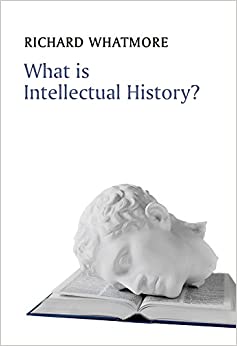
(Drawing on a wide range of historical examples, Richard W...)
Drawing on a wide range of historical examples, Richard Whatmore shows how ideas - philosophical, political, religious, scientific, artistic - originated in their historical context and how they were both shaped by, and helped to shape, the societies in which they originated.
https://www.amazon.com/What-Intellectual-History/dp/0745644937/ref=sr_1_2?dchild=1&keywords=Richard+Whatmore&qid=1595512390&s=books&sr=1-2
2015
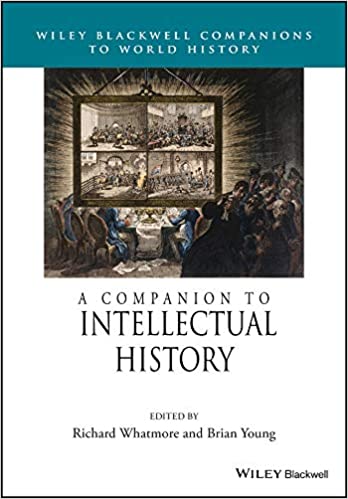
(A Companion to Intellectual History provides an in-depth ...)
A Companion to Intellectual History provides an in-depth survey of the practice of intellectual history as a discipline. Forty newly-commissioned chapters showcase leading global research with broad coverage of every aspect of intellectual history as it is currently practiced.
https://www.amazon.com/Companion-Intellectual-History-Blackwell-Companions-ebook/dp/B017PNQ2JC/ref=sr_1_5?dchild=1&keywords=Richard+Whatmore&qid=1595512390&s=books&sr=1-5
2015
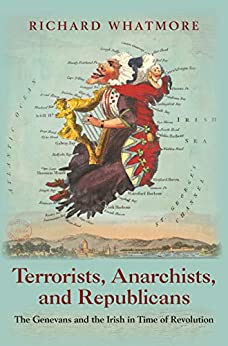
(Terrorists, Anarchists, and Republicans shows how the mas...)
Terrorists, Anarchists, and Republicans shows how the massacre at Genevan Barracks marked an end to the old Europe of diverse political forms, and the ascendancy of powerful states seeking empire and markets - in many respects the end of enlightenment itself.
https://www.amazon.com/Terrorists-Anarchists-Republicans-Genevans-Revolution-ebook/dp/B07W4XT8Y5/ref=sr_1_1?dchild=1&keywords=Richard+Whatmore&qid=1595512390&s=books&sr=1-1
2019
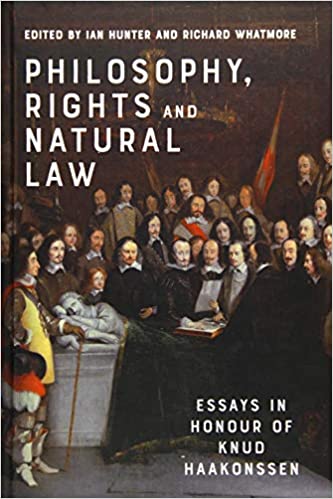
(Over his long and illustrious career, Knud Haakonssen has...)
Over his long and illustrious career, Knud Haakonssen has explored the role of natural law in formulating doctrines of obligation and rights in accordance with the interests of early modern polities and churches. The essays collected in this volume range across this exciting and contested field. These 13 new essays acknowledge Haakonssen's immense academic achievement and give us new insights into the cultural and political role of law and rights in a variety of historical contexts and circumstances.
https://www.amazon.com/Philosophy-Rights-Natural-Law-Haakonssen/dp/1474449220/ref=sr_1_3?dchild=1&keywords=Richard+Whatmore&qid=1595512390&s=books&sr=1-3
2019
Richard Whatmore was born on February 19, 1968, in Newcastle upon Tyne, United Kingdom.
In 1986-1989, Richard Whatmore attended the University of Cambridge. In 1995, he earned a Doctor of Philosophy from this University.
Richard Whatmore is Professor of Modern History at the University of St Andrews and Co-Director of the Institute of Intellectual History. He came to St Andrews in 2013 from the University of Sussex, where he had been a Professor of Intellectual History and the History of Political Thought since 1993. His research and teaching cover the following topics: Early Modern and Modern Intellectual History (including Politics, International Relations, Political Economy and Religion); Theories of Empire, Democracy and War; Enlightenment and Revolution; Republican Diaspora; Small States and Failed States; Relations between Britain and Europe; Political Cartoons. In 2012, Richard Whatmore and the University of Sussex Ph.D. student Paul Myles launched a project devoted to understanding what inspired 18th Century political pamphleteer Thomas Paine to help bring about the United States' Independence.
A historian and lecturer at the University of Sussex, Richard Whatmore joined with colleagues Stefan Collini and Brian Young in editing and publishing British Intellectual History, 1750-1950, a two-volume collection of essays by historians in the Sussex School of Intellectual History. A loose term, largely rejected even by Collini in his introduction, the Sussex school "consists of openness to the attractions and advantages of a "thickly textured" sense of the intellectual past, in which the full range of ideas, idioms, and audiences that goes into making a piece of writing and its reputation are given proper consideration," according to David Runciman in the Times Higher Education Supplement. The twenty-two essays in these volumes address such topics as Edmund Gibbons' religious feelings, the Victorians' newfound admiration of Oliver Cromwell, and the growth of Adam Smith's reputation in the early nineteenth century.
The same year as British Intellectual History, 1750-1950 came out, Whatmore published Republicanism and the French Revolution: An Intellectual History of Jean-Baptiste Say's Political Economy. In addition to exploring Say's economic prescriptions, Whatmore delves into their intellectual root and ultimately into the entire background to French republicanism, which seemed to emerge so suddenly in 1791. Richard Whatmore's latest book is Terrorists, Anarchists, and Republicans. The Genevans and the Irish in time of Revolution, published in 2019.
(Drawing on a wide range of historical examples, Richard W...)
2015(Terrorists, Anarchists, and Republicans shows how the mas...)
2019(Over his long and illustrious career, Knud Haakonssen has...)
2019(As Britain and France became more powerful during the eig...)
2012(These two volumes contain new essays by many of the leadi...)
2000(This book provides a new interpretation of political thou...)
2000(A Companion to Intellectual History provides an in-depth ...)
2015
